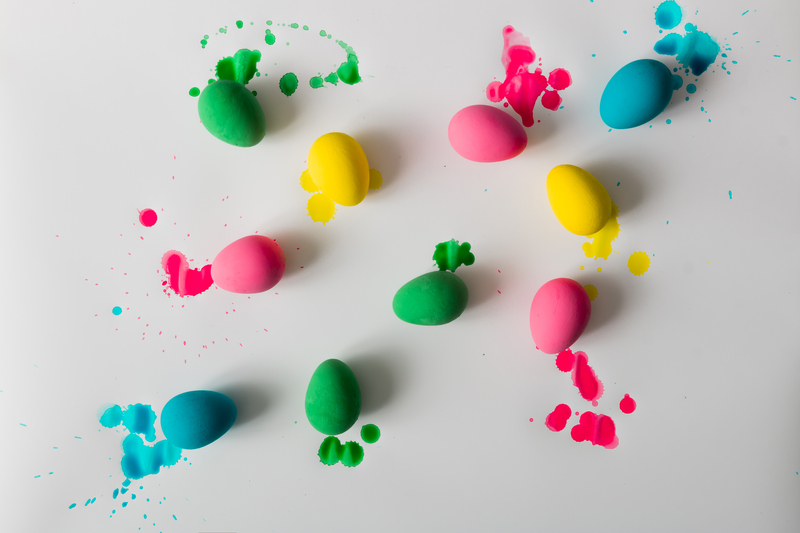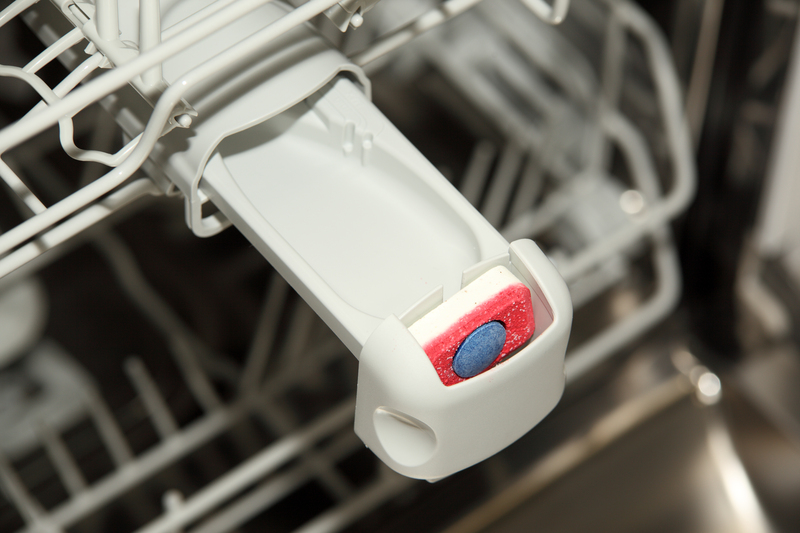Mastering the Art of Jewellery Cleaning
Posted on 01/10/2025
Mastering the Art of Jewellery Cleaning
Jewellery is not just an accessory; it is a cherished expression of style, emotion, tradition, and sometimes even legacy. Over time, however, these precious gems and metals can lose their radiance, becoming dull due to dirt, oils, and environmental pollutants. The good news? You don't need to be a professional jeweller to keep your favourite pieces gleaming. With the right techniques and knowledge, you can master the art of jewellery cleaning and maintain the brilliance of your adornments for years to come.
Why Should You Clean Your Jewellery?
Everyday wear, exposure to lotions, perfumes, natural skin oils, and dust can diminish the sparkle of your favourite jewellery. Regular jewellery maintenance not only helps restore shine but also prolongs the life and value of your pieces. Additionally, properly cleaned jewellery reduces skin irritation and prevents potential allergens.
- Preserves original shine and brilliance
- Prevents damage and buildup of grime
- Enhances hygiene and reduces risk of skin issues
- Allows for timely detection of loose settings or damages

Understanding Different Types of Jewellery
Before you begin the cleaning process, it is essential to identify the type of jewellery you have. Each material -- from gold to silver, diamond to pearl -- requires unique care and cleaning methods to avoid damage.
Common Jewellery Materials:
- Gold: Elegant and timeless but susceptible to scratching and build-up.
- Silver: Prone to tarnishing when exposed to air and moisture.
- Diamonds: Durable yet can accumulate dirt and oil, losing their sparkle.
- Pearls: Delicate and easily damaged by harsh chemicals.
- Platinum: Highly resilient but can lose shine over time.
- Gemstones: Varying degrees of hardness and sensitivity.
Tip: Always research the specific cleaning requirements for coloured gemstones, as some cannot withstand certain solutions.
Essential Tools for At-Home Jewellery Cleaning
To clean jewellery at home efficiently, it's important to gather the right supplies. Thankfully, most are household items. Here's what you'll need for an effective cleaning routine:
- Mild dish soap
- Soft-bristled toothbrush or small brush
- Microfiber or lint-free cloth
- Bowl of lukewarm water
- Cotton swabs
- Jewellery polishing cloth (optional for a professional finish)
Mastering Jewellery Cleaning: Step-by-Step Methods
1. How to Clean Gold Jewellery
Gold jewellery, while resilient, can gather oils and residues that dull its shine. Here's an easy method for gold jewellery cleaning:
- Mix a few drops of mild dish soap with warm water in a bowl.
- Soak your gold jewellery for about 15-20 minutes to loosen dirt and grime.
- Gently brush the surface with a soft toothbrush to clean crevices.
- Rinse under clean, warm water to eliminate soap residue.
- Pat dry using a soft, lint-free cloth.
Important: Never use harsh abrasives or chlorine-based cleaners on gold as they can cause lasting damage.
2. How to Clean Silver Jewellery
Silver tarnishes easily because of its reaction with sulfur and oxygen. To restore silver jewellery, try this method:
- In a bowl, mix warm water with several drops of mild dish soap.
- Soak the silver pieces for 2-5 minutes.
- Use a cellulose sponge or soft cloth to gently rub away tarnish.
- For stubborn tarnish, make a paste with baking soda and water, then rub gently.
- Rinse and dry thoroughly.
Alternative Method: For heavily tarnished silver, line a small bowl with aluminium foil, add one tablespoon of baking soda and salt, then pour in hot water. Soak the jewellery for a few minutes and tarnish should transfer to the foil.
Note: Never use this method with pieces featuring gemstones or pearls.
3. How to Clean Diamond Jewellery
Diamonds are the most durable gemstones but can appear dull once coated with oils or soap scum. Here's how to bring back their fire:
- Mix warm water and a drop of ammonia or non-abrasive dish soap.
- Soak the diamond jewellery for 10-15 minutes.
- Gently brush settings and stones with a soft-bristled toothbrush.
- Rinse thoroughly with lukewarm water.
- Polish dry with a lint-free cloth.
Caution: Avoid soaking for too long, and never use bleach or harsh chemicals on diamond settings.
4. How to Clean Pearls and Delicate Gemstones
Pearls and soft gemstones such as turquoise, lapis lazuli, or opals require special handling. To clean delicate jewellery:
- Dampen a soft, clean cloth with a solution of lukewarm water and a tiny amount of mild shampoo.
- Wipe each pearl or stone gently, avoiding saturation.
- Rinse the cloth in clean water and wipe the items again to remove soap residue.
- Lay flat on a towel to air dry completely before storing.
Note: Never submerge pearl jewellery or use ultrasonic cleaners, as these can damage the nacre and overall structure.
Advanced Cleaning Methods: Professional and At-Home Devices
For a deeper clean or for pieces with intricate designs, you might consider advanced methods:
- Ultrasonic Cleaners: Devices that use ultrasonic waves to dislodge dirt. Not safe for pearls, opals, or some soft gemstones.
- Steam Cleaners: Utilize high-pressure steam -- best reserved for diamonds and robust metals.
- Jewellery Cleaning Solutions: Commercial cleaners designed for specific jewellery types -- always read labels and test on a small area.
Pro Tip: When in doubt, take your jewellery to a professional jeweller for cleaning and an inspection.
Common Mistakes to Avoid in Jewellery Cleaning
Even with the best intentions, it's easy to inadvertently cause harm while cleaning jewellery. Here are some common mistakes to avoid:
- Using toothpaste or baking soda directly as abrasives (scratches softer materials).
- Soaking porous stones in water (causes irreversible damage).
- Applying bleach, vinegar, or ammonia to delicate pieces.
- Drying with paper towels or tissues, which can scratch surfaces.
- Neglecting regular cleaning (leading to buildup that's harder to remove).
How Often Should You Clean Your Jewellery?
The frequency of jewellery maintenance depends on usage, material, and exposure to potential contaminants:
- Daily wear pieces: (e.g., engagement rings, wedding bands) -- light cleaning once a week, deep cleaning monthly.
- Occasional pieces: Clean before and after wearing.
- Heirlooms and antiques: Handle with extreme care. Professional assessment recommended annually.
Storing Clean Jewellery for Maximum Longevity
Proper storage is as crucial as cleaning. To ensure your jewellery remains pristine:
- Use a soft-lined jewellery box with individual compartments.
- Store silver in anti-tarnish pouches or cloths.
- Keep pearls away from direct sunlight and humidity.
- Remove jewellery before swimming, exercising, or applying lotions and perfumes.
Proactive care preserves the beauty and integrity of your treasured adornments.
Natural Jewellery Cleaning Solutions: Safe DIY Recipes
For those who prefer eco-friendly options, try these natural jewellery cleaning recipes:
- Baking Soda and Water Paste: For silver (not gemstones). Mix three parts baking soda to one part water, apply with a cloth, rub gently, then rinse.
- Cornstarch Polish: Make a paste with cornstarch and water. Apply, allow to dry, buff with a soft cloth.
- Club Soda Soak: Soaking diamonds and sapphires for a few minutes can revive their sparkle.
Always spot-test natural solutions on small areas before applying to entire pieces!
Signs Your Jewellery Needs Professional Attention
While most jewellery cleaning techniques can be handled at home, there are times when expert care is essential. Watch out for:
- Discolouration that cleaning doesn't remove
- Loose prongs, stones, or bent components
- Heavy tarnish or damage
- Delicate antique or sentimental pieces requiring restoration
If in doubt, always seek advice from a trusted professional jeweller.

Master the Art of Jewellery Cleaning: Final Tips
- Handle each piece with care -- jewellery is often more fragile than it appears.
- Use the appropriate method for each material to avoid damage.
- Establish a regular cleaning routine for long-term brilliance.
- Seek professional help when necessary -- especially for valuable items.
Frequently Asked Questions about Jewellery Cleaning
- Can I use toothpaste to clean my jewellery?
- It is not recommended. Toothpaste contains abrasives that can scratch gold, silver, and soft gemstones.
- Is it safe to clean jewellery with vinegar?
- Use with extreme caution. Vinegar can damage certain stones and metals, especially pearls and delicate gems.
- How do I keep my diamonds sparkling?
- Clean them regularly with a soap-and-water solution and soft brush. Remove before engaging in heavy work to avoid chipping or damaging settings.
Conclusion: Shine with Confidence
Mastering the art of jewellery cleaning is a worthwhile skill for any jewellery lover. Proper care enhances not just appearance, but also longevity and value. Whether your collection is made up of precious gold, sparkling diamonds, or sentimental family heirlooms, following the right jewellery cleaning techniques ensures your treasures continue to shine for generations. Don't underestimate the power of regular maintenance -- give your beloved jewellery the attention it deserves, and let it dazzle for a lifetime.
Remember: Well-cared-for jewellery doesn't just look better; it feels better, too.
Latest Posts
Fresh Perspectives: The Overlooked Importance of Indoor Air Quality
Mastering the Art of Jewellery Cleaning
Conquer Cleaning Challenges with Brilliant Solutions



